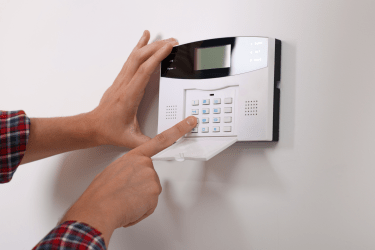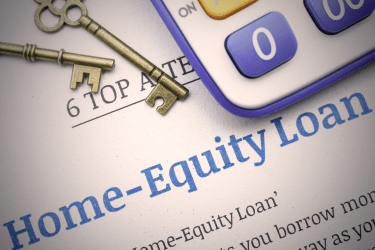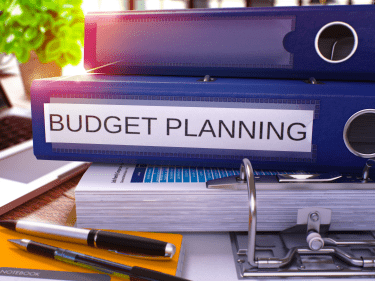Top Home Security Systems for Every Budget

Top Home Security Systems for Every Budget
Home security is one of those crucial aspects that no homeowner should overlook. It’s not just about safeguarding your property but also about ensuring the safety and well-being of your loved ones. Today, we’re diving deep into the world of home security systems that cater to every budget. Whether you’re a homeowner aiming for a robust security setup or someone looking to invest smartly without breaking the bank, this guide is for you.
The first step to effective home security is understanding your needs and balancing them with what you can afford. When it comes to budgeting tips for home security, it’s essential to conduct a thorough cost-benefit analysis. This means weighing the costs of various systems against the benefits they offer, ensuring you get the most bang for your buck. As you navigate through this article, we’ll explore how you can efficiently budget for home security and make informed decisions that keep your home safe without stretching your finances too thin.
Understanding the Importance of Home Security
Before we delve into the specifics of various home security systems, let’s take a moment to understand why home security is paramount. In today’s world, where burglaries and unauthorized entries are not uncommon, having a reliable home security system offers peace of mind.
Understanding the Cost-Benefit Analysis of Home Security Systems

Understanding the Cost-Benefit Analysis of Home Security Systems
In today’s world, safeguarding your home is more important than ever. With the rise in crime rates and the increasing number of break-ins, investing in a reliable home security system has become a necessity for many homeowners. But before you dive into purchasing one, it’s essential to conduct a thorough cost-benefit analysis. This will not only help you make an informed decision but also ensure that you manage home finances effectively, thereby providing peace of mind and financial stability. Considering both the initial investment and the long-term benefits can guide you to the best choice for your household.
The Importance of Home Security Systems
Home security systems are designed to protect your home from various threats, including burglaries, fires, and even carbon monoxide poisoning. These systems come equipped with a range of features such as alarms, surveillance cameras, motion detectors, and smart locks. The primary goal is to deter potential intruders and provide real-time alerts in case of any suspicious activities. Understanding the importance of these systems can help you appreciate their value beyond the upfront costs.
Key Features of Modern Home Security Systems
When evaluating home security systems, it’s crucial to understand the features they offer.
The Role of Emergency Funds in Home Security

The Role of Emergency Funds in Home Security
When you think about home security, the first things that pop into mind are probably alarm systems, motion detectors, and maybe even a trusty guard dog. But what if I told you that one of the most critical elements of home security has nothing to do with physical barriers or electronic gadgets? That’s right—I’m talking about your emergency fund. An emergency fund is more than just a financial cushion; it’s a fortress that protects you from unexpected events that could jeopardize your home and family’s security. Whether it’s an unforeseen medical bill, sudden job loss, or an urgent home repair, having an emergency fund can mean the difference between sailing smoothly through crises or sinking into financial chaos.
In this article, we’ll dive deep into why an emergency fund is a cornerstone for maintaining your home security, how to build one, and the role it plays in your overall financial plan, including managing insurance costs and budgeting for emergencies. We’ll also touch upon the importance of credit monitoring in safeguarding your financial standing.
Why an Emergency Fund is Essential for Home Security
Building an emergency fund might not be as glamorous as installing the latest home security system, but its importance can’t be overstated.
Comprehensive Financial Planning Strategies for Home Security

Comprehensive Financial Planning Strategies for Home Security
In today’s world, the concept of home security extends far beyond just locks and alarms. A truly secure home is one where safety measures are intertwined with a robust financial plan. This approach ensures not only the physical protection of your household but also its financial stability. As our homes become smarter and more connected, the need to align home finances with security measures becomes crucial. By integrating financial planning strategies with cutting-edge home security systems, you can create a fortress that safeguards both your loved ones and your assets. Understanding how to navigate this intersection of finance and security will set you on a path to peace of mind, knowing that every aspect of your home is protected.
The Intersection of Financial Planning and Home Security
Why Financial Planning Matters
Financial planning is the backbone of a secure life. Without a secure financial plan, even the most advanced home security systems fall short. It’s essential to budget for both immediate and long-term security expenses. This involves understanding the costs associated with installing, maintaining, and upgrading your security systems. A well-thought-out financial plan should account for periodic updates and potential emergencies, ensuring that your home remains protected at all times.
Leveraging Home Equity Loans for Security Upgrades

Leveraging Home Equity Loans for Security Upgrades
In today’s fast-paced world, ensuring the safety and security of your home is paramount. One of the often-overlooked avenues to enhance home security is through the strategic use of home equity loans. By tapping into your home’s equity, you can access necessary funds without the high interest rates associated with other financial products. This approach not only provides the capital for comprehensive security upgrades but also offers a secure financial plan tailored to your needs. Whether you’re looking to install advanced surveillance systems, reinforce entry points, or integrate smart home
technologies, leveraging home equity loans can be a game-changer in fortifying your residence against potential threats. For more insights on home loans and how they can benefit you, check out home loans.
Understanding Home Equity Loans
Home equity loans are a type of loan that allows homeowners to borrow against the equity they have built up in their property. Essentially, this means that your home acts as collateral, enabling you to secure funds based on the value of your home minus any outstanding mortgage balance. These loans come with several advantages, including lower interest rates compared to personal loans or credit cards, making them an attractive option for financing larger projects like home security upgrades.
Financial Planning for Young Professionals

Financial Planning for Young Professionals
Financial planning is a crucial aspect of ensuring a stable and secure future, especially for young professionals who are at the early stages of their careers. By understanding the fundamentals of financial planning and analysis, individuals can lay a strong foundation for long-term financial success. This article delves into the key components of financial planning, the financial planning process, and the importance of having a well-defined financial plan.
Understanding Financial Planning and Analysis
Financial planning involves the assessment of an individual’s current financial situation, setting financial goals, and creating a roadmap to achieve those goals. Financial analysis plays a vital role in this process by examining income, expenses, investments, and other financial aspects to make informed decisions. For young professionals, financial planning and analysis serve as guiding principles to manage income effectively, save for the future, and build wealth over time.
The Financial Planning Process
The financial planning process typically consists of several key steps that young professionals should consider:
- Setting Financial Goals: Establish clear and achievable short-term and long-term financial goals, such as saving for a home, starting a business, or retirement planning.
- Assessing Financial Situation: Evaluate current income, expenses, assets, liabilities, and investment portfolio to understand your financial position.
Effective Debt Management for Better Home Security Financing

Effective Debt Management for Better Home Security Financing
Managing debt effectively is crucial not only for your financial well-being but also for enabling significant investments, such as home security upgrades. This article will explore the importance of debt management, how it can impact your ability to finance home security improvements, and practical tips for achieving effective debt management.
The Importance of Debt Management
Enhances Financial Stability
Effective debt management enhances your overall financial stability. By keeping your debt levels in check, you can ensure that you have sufficient funds for essential expenses, savings, and investments. This stability provides a firm foundation for making substantial purchases or improvements, such as upgrading your home security system.
Improves Credit Score
Maintaining a good credit score is essential for securing favorable financing options. Proper debt management helps improve your credit score by ensuring timely payments and reducing outstanding balances. A higher credit score can qualify you for better interest rates and terms when seeking loans for home security upgrades.
Reduces Financial Stress
Debt can be a significant source of stress. Managing your debt effectively can reduce financial anxiety and provide peace of mind, allowing you to focus on other aspects of your life, such as home improvements.
How to Create a Budget That Works for You

How to Create a Budget That Works for You
Creating a budget that truly works for you isn’t just about numbers on a spreadsheet; it’s about shaping a financial plan that aligns with your lifestyle, goals, and priorities. In today’s fast-paced world, personal budgeting is more crucial than ever. Whether you’re saving for a dream vacation, paying off debt, or building an emergency fund, a well-structured budget can be a game-changer. Effective financial planning doesn’t follow a one-size-fits-all approach. It involves understanding your income, expenses, and financial goals. By learning how to manage your home finances efficiently, you set yourself up for long-term success and stability. This comprehensive guide will walk you through the steps to create a budget tailored to your unique needs.
Understanding Your Financial Situation
Before diving into creating a budget, take a moment to assess your current financial situation. Knowing where you stand financially is the foundation of successful personal budgeting.
Track Your Income
Start by listing all sources of income, including your salary, freelance work, side gigs, and any other streams. Note the frequency and amount of each source. Understanding your total monthly income is crucial for effective financial planning.
List Your Expenses
Next, compile a detailed list of your monthly expenses.
Top Budgeting Tips for Homeowners

Top Budgeting Tips for Homeowners
Managing a household budget can be challenging, especially for homeowners who have to juggle mortgage payments, maintenance costs, utility bills, and other expenses. Effective financial planning is essential to ensure that you can cover all your expenses without falling into debt. Here are some top budgeting tips tailored specifically for homeowners to help you navigate the complexities of household finances.
Create a Comprehensive Budget Plan
The first step in effective financial planning is creating a comprehensive budget plan. This involves listing all your income sources and expenses to get a clear picture of your financial situation. Start by categorizing your expenses into fixed and variable costs.
Fixed Costs
- Mortgage Payments: Include principal and interest payments.
- Property Taxes: Estimate based on your local tax rate.
- Homeowners Insurance: Essential for protecting your home against risks.
Variable Costs
- Utilities: Electricity, water, gas, and internet bills.
- Groceries: Weekly or monthly food expenses.
- Transportation: Fuel, public transport, and vehicle maintenance.
Miscellaneous Costs
- Maintenance and Repairs: Allocate funds for routine maintenance and unexpected repairs.
- Home Improvements: Budget for any upgrades or renovations.
By organizing your expenses, you can identify areas where you can cut back and allocate funds more effectively.
The Financial Benefits of Energy-Efficient Home Upgrades

The Financial Benefits of Energy-Efficient Home Upgrades
So, you’ve been hearing a lot about energy-efficient upgrades for your home, right? But are you still on the fence about whether they’re worth the investment? Well, let’s clear that up. Not only do these upgrades make your home more comfortable and environmentally friendly, but they also come with substantial financial benefits. Yes, you heard that right—switching to energy-efficient solutions can significantly cut down your utility bills and even increase the value of your property. In this article, we’ll dive into how you can make the best of energy-efficient home improvements and why these upgrades are financially beneficial in the long run. Plus, we’ll share saving tips to maximize your return on investment.
What Are Energy-Efficient Upgrades?
Before diving into the financial benefits, let’s clarify what energy-efficient upgrades are. Essentially, these upgrades involve making changes to your home that reduce its energy consumption without sacrificing performance or comfort. This can range from installing LED lighting and energy-efficient appliances to upgrading your insulation and windows. By making these changes, you ensure that your home uses less energy, thereby reducing your utility bills and carbon footprint.
Types of Energy-Efficient Upgrades
- Lighting: Switching to LED bulbs can save a significant amount of energy compared to traditional incandescent bulbs.
